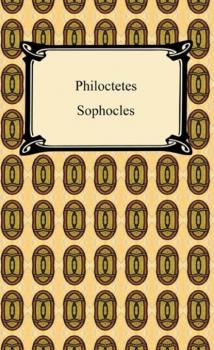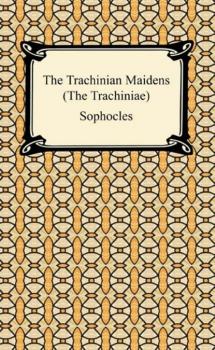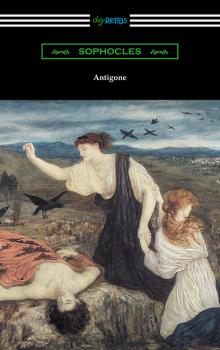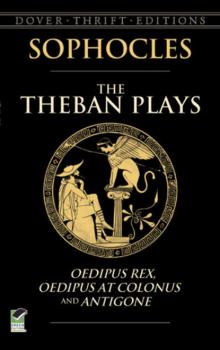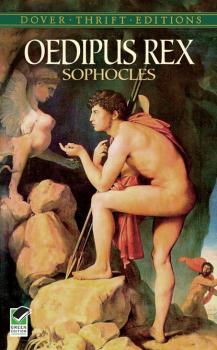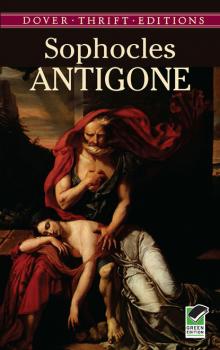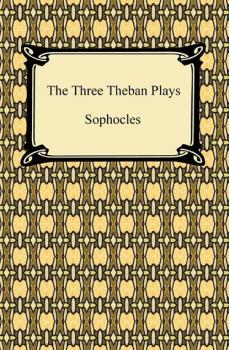ТОП просматриваемых книг сайта:
Sophocles
Список книг автора SophoclesАннотация
One of only seven surviving plays written by the great Greek tragedian Sophocles, «Philoctetes» follows the life of a unique and important man through his trials and triumphs. The only man willing to light the funeral pyre of Hercules, Philoctetes is awarded his bow in repayment. Later, as he leaves to fight in the Trojan War, Philoctetes is bitten on the foot by a snake and left behind on the desert island of Lemnos by Odysseus. When the gods reveal the Greeks' need of Philoctetes and his bow, however, Odysseus employs the honest Neoptolemus to deceive Philoctetes into rejoining the Trojan War. «Philoctetes» is a study of the timeless controversy that often arises between physical strength and morality in the quest for glory.
Аннотация
One of the few known plays of Sophocles, the great Greek tragedian, «The Trachinian Maidens» or «The Trachiniae» gives an insightful account of the wife of Hercules. Her name is Deianeira, and she struggles with the neglect she and her family suffer from the frequent and lengthy adventures of Hercules. When she discovers that her husband has laid siege to a city just to obtain the beautiful Iole, Deianeira is determined to create a charm that will cause Hercules to love none more than her. The result is disastrous, for Deianeira was deceived, and the consequences for the couple prove painful and fatal.
Аннотация
The second story in the Oedipus Trilogy, «Antigone», examines the conflict between public duty and personal loyalty. Following the banishment of Oedipus, Eteocles and Polyneices kill each other over a dispute of succession to the thrown of Thebes. Creon, Antigone's uncle, succeeds to the thrown and declares that no one may bury Polyneices under penalty of death. Antigone, disregards this order and buries Polyneices and is willing to face the consequence for doing so. As a result, Creon must choose between what he believes to be his civic duty and his personal loyalty to his family.
Аннотация
The oldest surviving play of the great Greek tragedian Sophocles, «Aias» or «Ajax» unfolds the destiny of the warrior Aias after the Trojan War. He is infuriated with the Greek leaders for awarding the armor of Achilles to Odysseus, and he vows to kill them in his vengeance. When he attempts to seek his revenge, however, the goddess Athena interferes, leading him into disgrace. Determined to end his own life, Aias disregards the pleading of his wife and gives a stirring final speech before committing suicide. What follows is the question of his burial: does he deserve respect in death for leading an otherwise noble life?
Аннотация
Only seven plays of the Ancient Greek dramatist Sophocles have survived to today. Sophocles is best known for his trilogy of dramas known as the “Three Theban Plays”, which is comprised of the plays “Oedipus Rex”, “Oedipus at Colonus”, and “Antigone”. The remaining four extant plays are collected together in this volume of “Electra and Other Plays”. First in this collection we find “Ajax”, the oldest of Sophocles plays which unfolds the destiny of the warrior Ajax after the Trojan War. Second there is “The Trachinian Maidens”, which gives an insightful account of the neglect that the wife of Hercules, Deianeira, and her family suffer as a result of her husband’s frequent and lengthy adventures. Thirdly we find the title drama, “Electra” which tells the classic tale of a young daughter’s revenge for her father’s death. Lastly in this collection there is, “Philoctetes”, which follows the life of a unique and important man through his trials and triumphs. In this volume the reader will find more evidence of why Sophocles is considered one of the greatest dramatists from classical antiquity. This edition follows the verse translations of Lewis Campbell and includes a biographical afterword.
Аннотация
“Antigone,” the first Theban play written by Sophocles yet chronologically last in the cycle, is a masterpiece of classical antiquity which examines the conflict between public duty and personal loyalty. Following the banishment of Oedipus, his two sons Eteocles and Polyneices have died leading opposite sides in Thebes’s civil war, fighting each other for the throne. Queen Jocasta’s brother Creon, now the ruler of Thebes, declares that Eteocles will be honored but Polyneices is to be publically shamed by refusing him burial rites. Creon declares that anyone attempting to do so will be put to death. In ancient Greece the refusal of burial rites was one of the most disrespectful acts that could have been shown to a person and their family. Antigone finds herself compelled by familial duty and disregards Creon’s edict by scattering dirt across Polyneices’s corpse. Creon, whose son Haemon is engaged to Antigone, finds himself torn between a personal loyalty to his family and a civic duty to punish Antigone for this crime. One of the greatest dramas from classical antiquity, “Antigone,” along with its Theban counterparts, “Oedipus the King,” and “Oedipus at Colonus,” established Sophocles as one of the most renowned dramatists of his era. This edition follows the translation of E. H. Plumptre and includes an introduction by J. Churton Collins.
Аннотация
The stirring tale of a legendary royal family's fall and ultimate redemption, the Theban trilogy endures as the crowning achievement of Greek drama. Sophocles' three-play cycle, chronicling Oedipus's search for the truth and its tragic results, remains essential reading for English and classical studies majors as well as for all students of Western civilization.Oedipus Rex unfolds amid a city in the relentless grip of a plague. When an oracle proclaims that only an act of vengeance will lift the curse from Thebes, King Oedipus vows to bring a murderer to justice. His quest engenders a series of keen dramatic ironies, culminating in the fulfillment of a dreaded prophecy. Oedipus at Colonus finds the former ruler in exile. Old and blind, he seeks a peaceful place to end his torment, but finds only challenges from his reluctant hosts and a summons back to Thebes from his warring sons. The trilogy concludes with Antigone, in which Oedipus's courageous daughter defies her tyrannical uncle in a provocative exploration of the demands of loyalty and duty.
Информация о книге
Автор произведения Sophocles
Жанр Античная литература
Серия Dover Thrift Editions
Аннотация
Considered by many the greatest of the classic Greek tragedies, Oedipus Rex is Sophocles' finest play and a work of extraordinary power and resonance. Aristotle considered it a masterpiece of dramatic construction and refers to it frequently in the Poetics.In presenting the story of King Oedipus and the tragedy that ensues when he discovers he has inadvertently killed his father and married his mother, the play exhibits near-perfect harmony of character and action. Moreover, the masterly use of dramatic irony greatly intensifies the impact of the agonizing events and emotions experienced by Oedipus and the other characters in the play. Now these and many other facets of this towering tragedy may be studied and appreciated in Dover's attractive inexpensive edition of one of the great landmarks of Western drama.
Аннотация
In his long life, Sophocles (born ca. 496 B.C., died after 413) wrote more than one hundred plays. Of these, seven complete tragedies remain, among them the famed Oedipus Rex and Oedipus at Colonus. In Antigone, he reveals the fate that befalls the children of Oedipus. With its passionate speeches and sensitive probing of moral and philosophical issues, this powerful drama enthralled its first Athenian audiences and won great honors for Sophocles.The setting of the play is Thebes. Polynices, son of Oedipus, has led a rebellious army against his brother, Eteocles, ruler of Thebes. Both have died in single combat. When Creon, their uncle, assumes rule, he commands that the body of the rebel Polynices be left unburied and unmourned, and warns that anyone who tampers with his decree will be put to death.Antigone, sister of Polynices, defies Creon's order and buries her brother, claiming that she honors first the laws of the gods. Enraged, Creon condemns her to be sealed in a cave and left to die. How the gods take their revenge on Creon provides the gripping denouement to this compelling tragedy, which remains today one of the most frequently performed of classical Greek dramas.
Аннотация
One of the most famous poets from classical antiquity, Sophocles was one of three important ancient Greek tragedians, the others being Aeschylus and Euripides. Writing during the 5th century BC, Sophocles created some one hundred and twenty three plays during his lifetime, of which only seven have survived in their entirety. In this edition are included the three so-called Theban plays, as translated by Francis Storr, which are widely considered his most important works. These works include «Antigone» the story of its title character, a strong heroine whose complete commitment to familial duty brings her to challenge the will of her king; «Oedipus the King», the legend of Oedipus who is exiled as an infant by his royal father because of a prophesy of patricide and incest; and «Oedipus at Colonus», a drama which finds Oedipus at the end of his life caught between the warring kings of Athens and Thebes who each desire that Oedipus' final resting place be in their respective lands. These classic tragedies are essential reading and their influence on modern literature and drama is a profound one.

